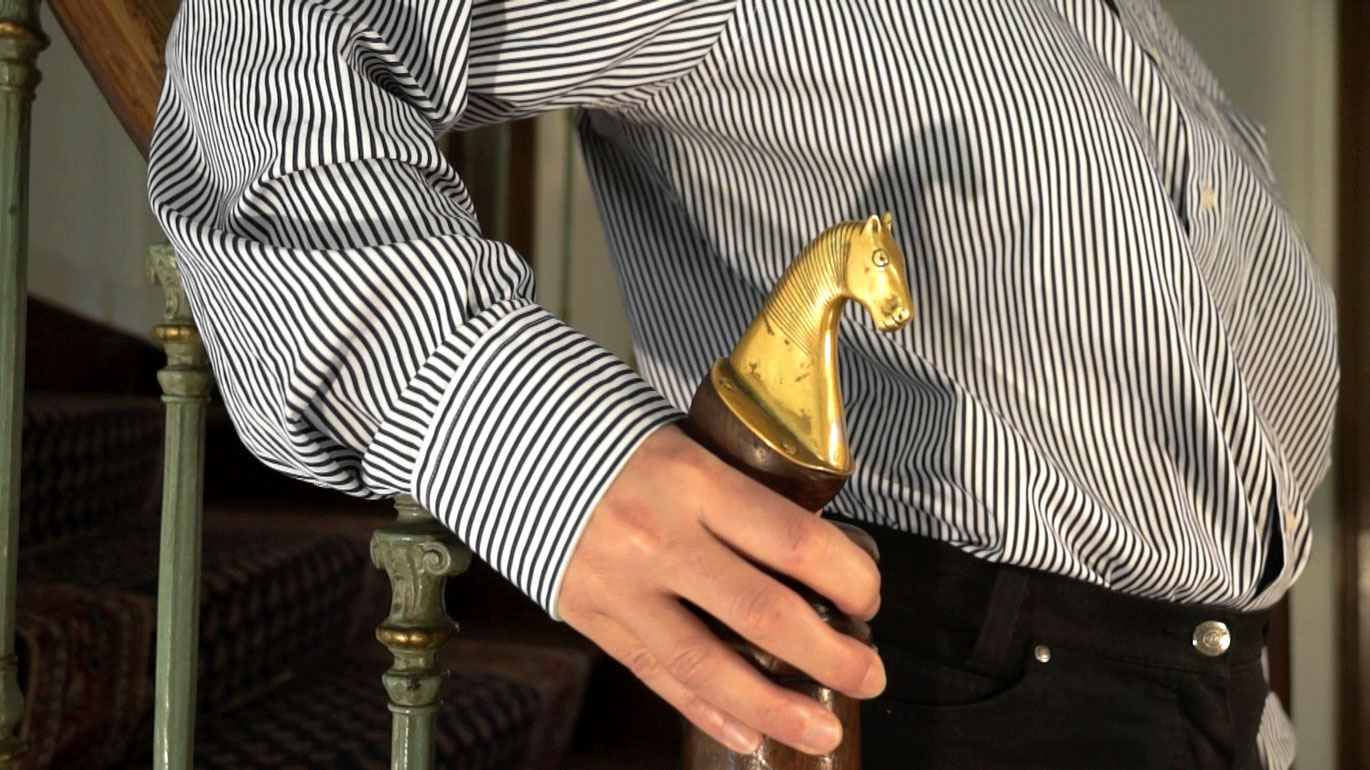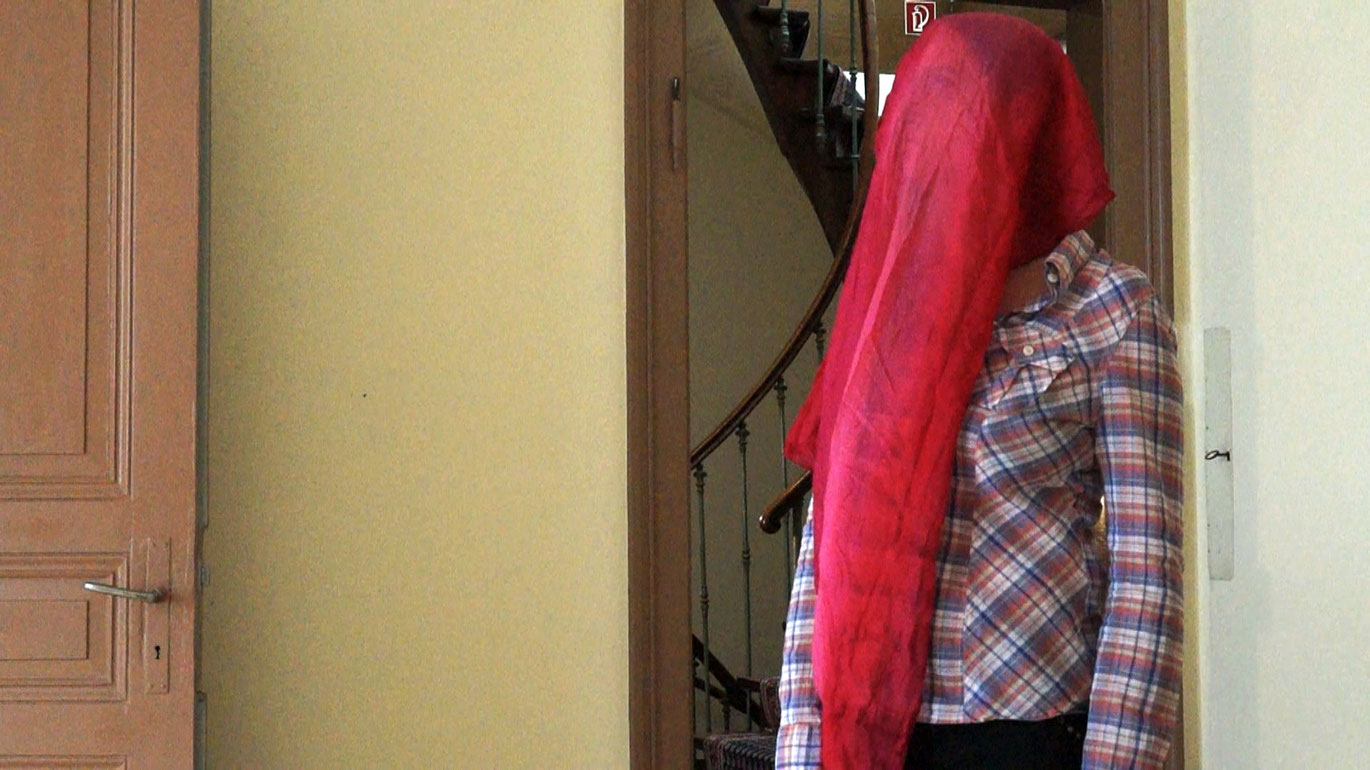SO FAR REAL
Actors demonstrate states and behavioral patterns of the mentally ill for medical students. Careful observations translate into language and movement, thus creating images for grasping the incomprehensible, understanding the intangible: Perhaps it´s the only way to put a displaced reality in perspective.
A mysterious house with no furniture, with white walls: a vacated sanatorium? A matte aluminum towel holder over a radiator, bars in front of the windows, in any case, a site that examines and questions reality based on the many blanks. The painstaking description of a person goes far beyond medical categorization. A neutral clinical picture becomes recognizable; the actors portray it meticulously, thus making it partially visible. The interaction with the space, the building, and the chair become comprehensible in cinematic clinical images and through the performance. The resistance to conventions becomes manifest in the certainty of a seemingly senseless movement and distortion of language. Catatonic rigidity paralyzes a body that cannot walk, pushing itself across the bare floor, thus seeking protection at ground level from the attacks of a lack of emotional detachment. Never cry in front of others, only in the safe seclusion of the locked toilet. The filmmaker´s voice takes over the actors´ voices and refocuses attention. What is said is given an echo, a voice-over, the spoken word is supplemented or replaced. This doubletalk creates a further subtle level of altered perception, interpretation, and attempted insight into illness.
With SO FAR REAL, Miriam Bajtala has once again created a performative exploration of space. The deconstruction of the physical and psychic spaces generates breathless tension. The non-acting people attempt to unravel the objectified reflections and respectful interventions of the acting people. The real remains so far away. (Wilbirg Brainin-Donnenberg)
SOFERN REAL
2016
Austria
30 min


